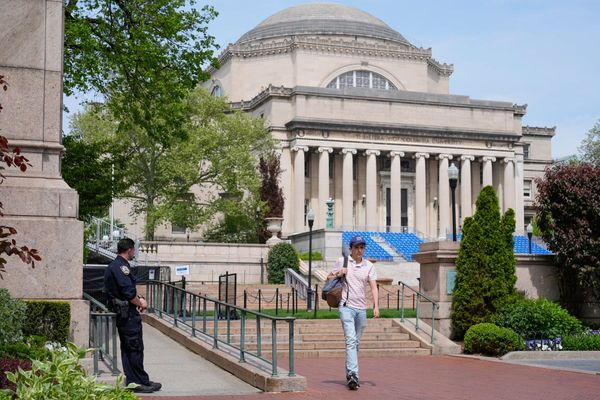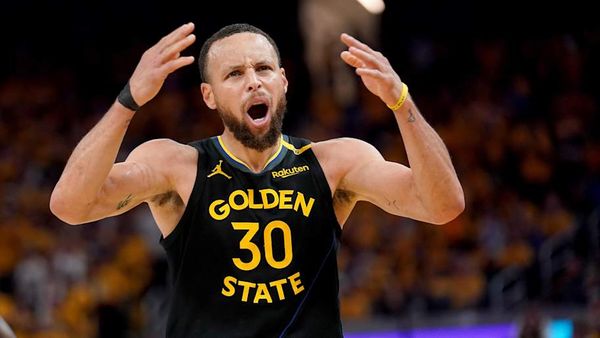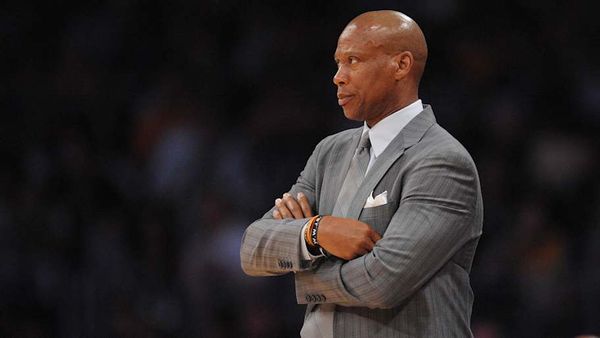
Has the symbol of the Southern Cross become comparable to a swastika? That is the provocative question at the heart of Warwick Thornton’s new documentary We Don’t Need a Map.
The Indigenous, Alice Springs-born artist, best-known for directing 2009’s devastatingly brilliant Samson and Delilah, generated considerable controversy when he raised that prospect – expressing concern it was going to happen, rather than stating it had – seven years ago.
Thornton, 47, says the rancorous media blowback “completely scared me. I like to have intelligent, sober conversations about things. But some people who are completely reactionary seem not to be capable of doing that. So I went oh, all right, better leave that one alone. And then, over the last couple of years, I got a bit pissed off about it. Someone throws rocks at me, fuck, I’ll go find a hand grenade and throw it back. That’s where I am at the moment. So that’s what I did. I made this movie.”
Our interview is conducted in near darkness in a screening room inside a cosy post-production facility in Chippendale, Sydney, illuminated by a projection screen in front of us and the glow of lights, dials and various doodads from an editing suite a couple of metres away. There, throughout our conversation, a colour grader works quietly away, applying finishing touches to Thornton’s highly anticipated upcoming film, Sweet Country.
According to Thornton, Sweet Country is a “classic western” with “lots of horses, guns, BO, people spitting, testosterone, carbon, rust, the smell of a dead kangaroo.” One of the scenes the colour grader works over during our interview is a magnificent-looking moment featuring a parched, cotton-mouthed, rather worse for wear Bryan Brown lying on the ground in a salt lake, desperate and feeble.
But it’s We Don’t Need a Map, which has its world premiere at this year’s Sydney Film Festival opening gala, that Thornton expects to receive a louder, more loaded response than any of his work to date. The documentary examines the evolution of the increasingly baggage-laden Southern Cross symbol, now more than ever associated with violent nationalism.

Thornton approaches the subject circuitously, and from multiple perspectives: scientific, historical, spiritual (in what it means to Indigenous Australians) and sociological. The film is interspersed with short animated segments featuring “bush toy” puppets (a unique form of desert art from the Ltyentye Apurte and Titjikala communities of central Australia) which inform the tone of the film, giving it an unexpectedly sassy, playful energy.
“You try to be respectful. Just because someone has a Southern Cross tattoo doesn’t mean they are racist,” Thornton says. “They might have gotten it way before. It might be a connection to their great great grandfather who, the poor bastard, jumped out of a trench and got shot to keep the British happy. There’s lots of connections. But people have taken it and they’ve fucked it for everyone.”
These include the violent mob that took to the streets during the Cronulla riots, an event briefly recapped in the documentary. Thornton believes there was nothing unusual about it: “The irony is, the Cronulla riots – that form of racism – happens every day. It’s sort of like the toilet being flushed. Maybe not that violent, but it happens every day. It should be called the Sydney riots. It should be called the fucking Australia riots.”
We Don’t Need a Map also contemplates the rise in nationalistic discourse in Australia and the prominence of divisive figures such as Pauline Hanson. This is a particularly timely conversation, given, on the day prior to our interview, the controversial One Nation Party leader responded to the London Bridge terrorist attack by creating an anti-Islam meme and calling for a ban on Islamic immigration.
Thornton and one of the experts featured in the film, the University of Melbourne’s Prof Ghassan Hage, discuss how the appeal of people such as Hanson has its roots in a sort of fraudulent nostalgia. Key to this is a belief that a) it is actually possible to “take back” control of a nation, and b) that countries such as Australia once exerted this kind of control in the first place.
“In the 50s people were saying that life in the 20s was amazing, that life was better back then. But if you go back to the 20s, in the newspapers you read how people were saying ‘oh, we were better off in 1880’. People create this sort of fantasy that there was a point when Australia was a utopia, and it never was,” Thornton says.
“Then we start agreeing. We say yeah, it was much better in the 50s! Bullshit, it wasn’t. It was much better in the 20s! Bullshit, it wasn’t. For an Indigenous person, we’ve never had a good time. Or maybe, actually, our good time was pre-1788. We had to keep the peace. We had to keep some form of sustainability with the land.
“But hell, we were fighting. We were killing each other. There were tribes that didn’t like each other. Sometimes we’d run over the sand dune and rape and pillage. So a utopian Indigenous society pre-1788 did happen, but there were times when it didn’t happen as well.”
Sweet Country also punctures that bubble of nostalgia, in its own way. It is “a beautiful story, based on Australia’s history. After all, Australia was better place in the 1920s, didn’t you know?” Thornton says, forming a wry smile. “It was a better country then. We had control of it.”
• We Don’t Need a Map is showing at Sydney film festival on 7, 11, and 13 June, and launches the Moment in History series on NITV and SBS on 23 July at 8.30pm







